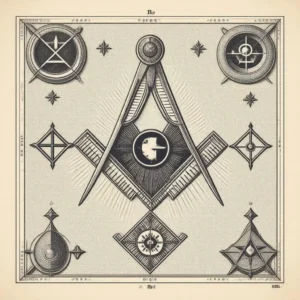Illuminati Symbols and Meanings
Covers the most well-known Illuminati symbols, including the all-seeing eye, pyramid, and pentagram.

From the silver screen to social media feeds, Entertainment and Media have become inseparable parts of our daily lives. They shape how we think, feel, and interact with the world around us. Whether it’s a blockbuster movie, a viral TikTok trend, or a gripping podcast, the influence of entertainment and media is undeniable.
But how did we get here? What makes entertainment and media so powerful? And what does the future hold for this ever-evolving industry? In this article, we’ll explore the history, impact, and future of Entertainment and Media, uncovering the secrets behind their global influence.
Entertainment has always been a part of human culture. Here’s a brief timeline of its evolution:
Technological advancements have been the driving force behind the evolution of entertainment and media. For example:
Internal Link: Learn more about the history of media.
External Link: Explore the evolution of media on Britannica.
Entertainment and media play a crucial role in shaping cultural norms and values. For instance:
The entertainment and media industry is a global economic powerhouse. Consider these statistics:
Internal Link: Discover how Beyoncé’s influence extends beyond music.
External Link: For more on the economic impact of media, visit Statista.
The future of entertainment and media is being shaped by innovation and consumer demand. Key trends include:
While the industry is booming, it also faces challenges:
Internal Link: Explore the future of media.
External Link: Learn about the metaverse on Wired.
The lines between traditional and digital media are blurring. Here’s a comparison:
| Aspect | Traditional Media | Digital Media |
|---|---|---|
| Distribution | TV, radio, print | Streaming, social media |
| Audience Reach | Limited by geography | Global |
| Interactivity | One-way communication | Two-way engagement |
Social media has transformed how we consume and share entertainment. Platforms like TikTok and Instagram have:
Internal Link: Discover the role of social media in pop culture.
External Link: For insights into social media trends, visit Hootsuite.
Streaming has made content more accessible, allowing users to watch what they want, when they want.
VR is expected to revolutionize gaming, education, and even social interactions.
Media shapes public opinion, cultural norms, and even political outcomes through storytelling and information dissemination.
Internal Link: Learn more about media’s influence.
External Link: For more FAQs, visit Forbes.
Entertainment and Media are more than just sources of amusement—they are powerful tools that shape our world. From ancient storytelling to cutting-edge virtual reality, the industry continues to evolve, reflecting and influencing society in profound ways.
As we look to the future, one thing is clear: the possibilities are endless. Whether you’re a creator, consumer, or industry professional, there’s never been a more exciting time to be part of the entertainment and media landscape.
For more insights or to share your thoughts, contact us at [https://illuminatiefraternity.site/contact/].
Covers the most well-known Illuminati symbols, including the all-seeing eye, pyramid, and pentagram.
Learn about the connection between the Priory of Sion and the mysteries of Rennes-le-Ch�teau.
Examine the most popular theories about the Priory of Sion and their implications.
Discover the historical ties between the Priory of Sion and the Knights Templar.
Explore the connection between the Priory of Sion and the Holy Grail, and the theories surrounding it.
The Illuminati Logo: Symbolism and Hidden Meanings The Illuminati logo is one of the most recognizable and controversial symbols in modern culture.
इलुमिनाटी का इतिहास हिंदी विकिपीडिया पर: सम्पूर्ण जानकारी इलुमिनाटी एक ऐसा नाम है जो रहस्य, साजिश, और शक्ति के साथ जुड़ा
Illuminati Hotties Setlist: What to Expect at Their Concerts If you’re a fan of indie rock, punk, and a dash
Illuminati Hotties Tour: Dates, Tickets, and More The Illuminati Hotties Tour is one of the most anticipated events in the indie music
The History of the Illuminati: From Founding to Modern Day The Illuminati has long been a subject of fascination, conspiracy